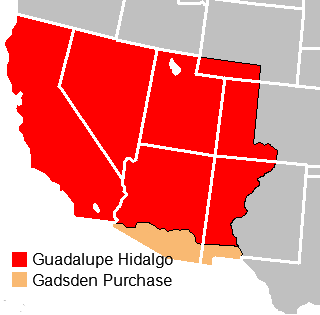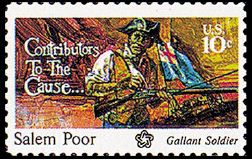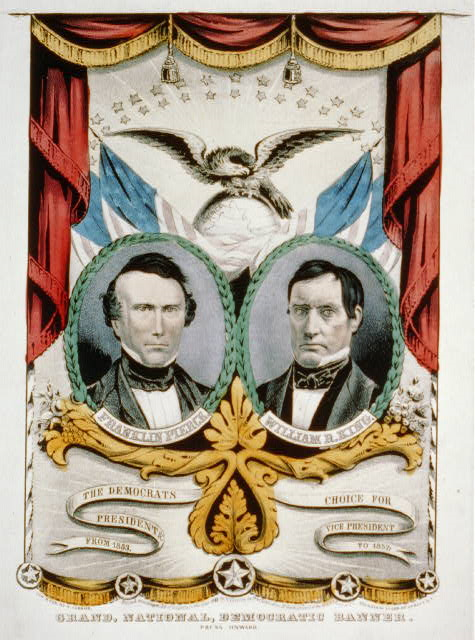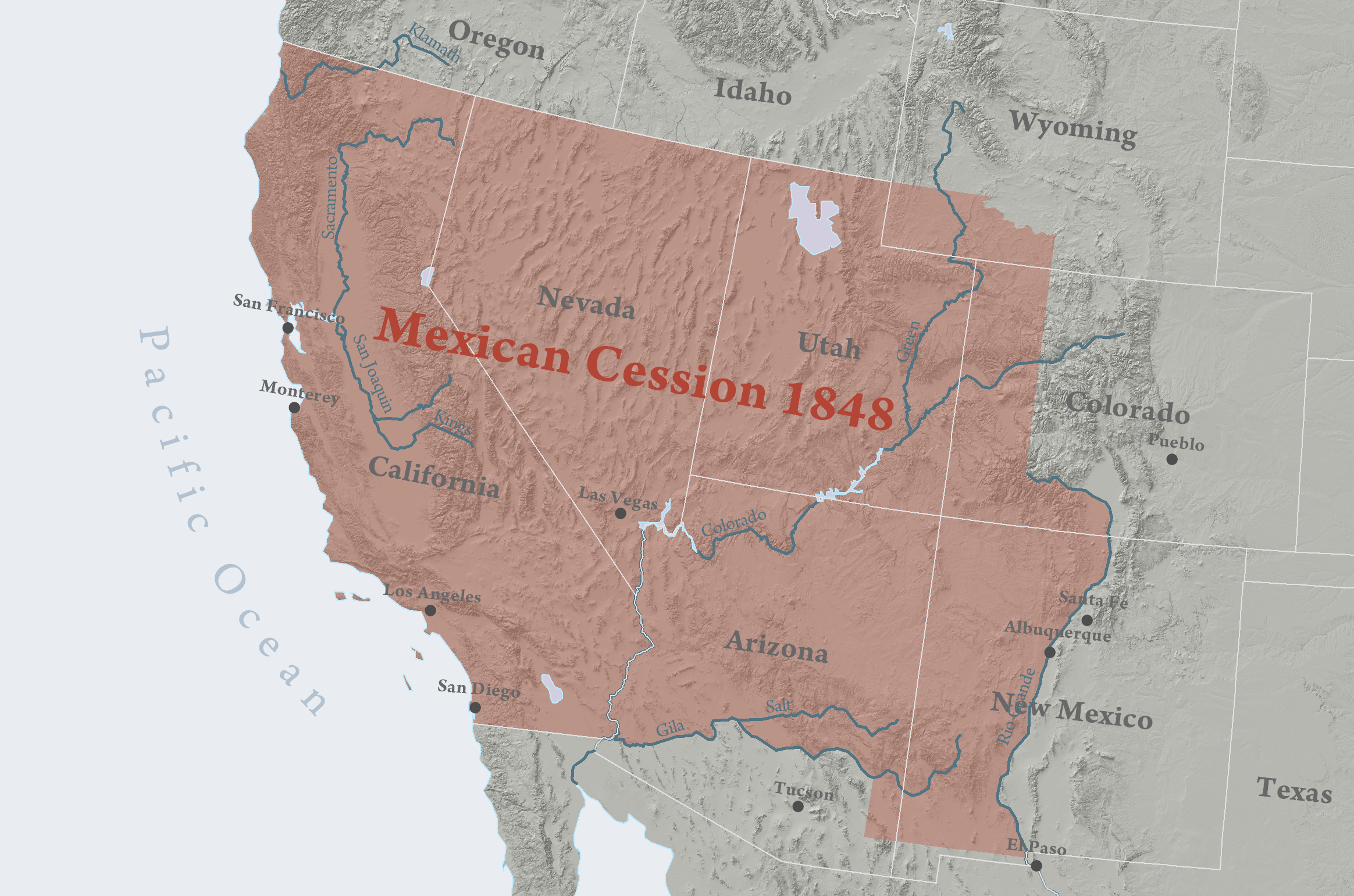|
United States Free Soil Party
The Free Soil Party, also called the Free Democratic Party or the Free Democracy, was a political party in the United States from 1848 to 1854, when it merged into the Republican Party. The party was focused on opposing the expansion of slavery into the western territories of the United States. The 1848 presidential election took place in the aftermath of the Mexican–American War and debates over the extension of slavery into the Mexican Cession. After the Whig Party and the Democratic Party nominated presidential candidates who were unwilling to rule out the extension of slavery into the Mexican Cession, anti-slavery Democrats and Whigs joined with members of the Liberty Party (an abolitionist political party) to form the new Free Soil Party. Running as the Free Soil presidential candidate, former President Martin Van Buren won 10.1 percent of the popular vote, the strongest popular vote performance by a third party up to that point in U.S. history. Though Van Buren a ... [...More Info...] [...Related Items...] OR: [Wikipedia] [Google] [Baidu] |
Martin Van Buren
Martin Van Buren ( ; ; December 5, 1782 – July 24, 1862) was the eighth president of the United States, serving from 1837 to 1841. A primary founder of the Democratic Party (United States), Democratic Party, he served as Attorney General of New York, New York's attorney general and United States Senator, U.S. senator, then briefly as the ninth governor of New York before joining Andrew Jackson's administration as the tenth United States secretary of state, minister to the United Kingdom of Great Britain and Ireland, United Kingdom, and ultimately the eighth vice president of the United States, vice president from 1833 to 1837, after being elected on Jackson's ticket in 1832 United States presidential election, 1832. Van Buren won the presidency in 1836 United States presidential election, 1836 against divided Whig opponents. He lost re-election in 1840 United States presidential election, 1840, and failed to win the Democratic nomination in 1844 United States presidential el ... [...More Info...] [...Related Items...] OR: [Wikipedia] [Google] [Baidu] |
Slavery In The United States
The legal institution of human chattel slavery, comprising the enslavement primarily of List of ethnic groups of Africa, Africans and African Americans, was prevalent in the United States of America from its founding in 1776 until 1865, predominantly in the Southern United States, South. Slavery was established throughout European colonization in the Americas. From 1526, during the early Slavery in the colonial history of the United States, colonial period, it was practiced in what became British America, Britain's colonies, including the Thirteen Colonies that formed the United States. Under the law, an enslaved person was treated as property that could be bought, sold, or given away. Slavery lasted in about half of U.S. states until Thirteenth Amendment to the United States Constitution, abolition in 1865, and issues concerning slavery seeped into every aspect of national politics, economics, and social custom. In the decades after the end of Reconstruction era, Recons ... [...More Info...] [...Related Items...] OR: [Wikipedia] [Google] [Baidu] |
Kansas–Nebraska Act
The Kansas–Nebraska Act of 1854 () was a territorial organic act that created the territories of Kansas and Nebraska. It was drafted by Democratic Senator Stephen A. Douglas, passed by the 33rd United States Congress, and signed into law by President Franklin Pierce. Douglas introduced the bill intending to open up new lands to develop and facilitate the construction of a transcontinental railroad. However, the Kansas–Nebraska Act effectively repealed the Missouri Compromise of 1820, stoking national tensions over slavery and contributing to a series of armed conflicts known as "Bleeding Kansas". The United States had acquired vast amounts of land in the 1803 Louisiana Purchase, and since the 1840s, Douglas had sought to establish a territorial government in a portion of the Louisiana Purchase that was still unorganized. Douglas's efforts were stymied by Senator David Rice Atchison of Missouri and other Southern leaders who refused to allow the creation of territories t ... [...More Info...] [...Related Items...] OR: [Wikipedia] [Google] [Baidu] |
1852 United States Presidential Election
United States presidential election, Presidential elections were held in the United States on November 2, 1852. History of the Democratic Party (United States), Democratic nominee Franklin Pierce defeated United States Whig Party, Whig nominee General Winfield Scott. Incumbent Whig President Millard Fillmore had succeeded to the presidency in 1850 upon the death of President Zachary Taylor. Fillmore endorsed the Compromise of 1850 and enforced the Fugitive Slave Act of 1850, Fugitive Slave Law. This earned Fillmore Southern voter support and Northern voter opposition. On the 53rd ballot of the sectionally divided 1852 Whig National Convention, Scott defeated Fillmore for the nomination. Democrats divided among four major candidates at the 1852 Democratic National Convention. On the 49th ballot, dark horse candidate Franklin Pierce won nomination by consensus compromise. The Free Soil Party, a third party (United States), third party opposed to the extension of slavery in the Uni ... [...More Info...] [...Related Items...] OR: [Wikipedia] [Google] [Baidu] |
Compromise Of 1850
The Compromise of 1850 was a package of five separate bills passed by the United States Congress in September 1850 that temporarily defused tensions between slave and free states during the years leading up to the American Civil War. Designed by Whig senator Henry Clay and Democratic senator Stephen A. Douglas, with the support of President Millard Fillmore, the compromise centered on how to handle slavery in recently acquired territories from the Mexican–American War (1846–48). The provisions of the compromise were: * approved California's request to enter the Union as a free state * strengthened fugitive slave laws with the Fugitive Slave Act of 1850 * banned the slave trade in Washington, D.C. (while still allowing slavery itself there) * defined northern and western borders for Texas while establishing a territorial government for the Territory of New Mexico, with no restrictions on whether any future state from this territory would be free or slave * establis ... [...More Info...] [...Related Items...] OR: [Wikipedia] [Google] [Baidu] |
Charles Sumner
Charles Sumner (January 6, 1811March 11, 1874) was an American lawyer and statesman who represented Massachusetts in the United States Senate from 1851 until his death in 1874. Before and during the American Civil War, he was a leading American advocate for the abolition of slavery. He chaired the Senate Foreign Relations Committee from 1861 to 1871, until he lost the position following a dispute with President Ulysses S. Grant over the Proposed annexation of Santo Domingo, attempted annexation of Santo Domingo. After breaking with Grant, he joined the Liberal Republican Party (United States), Liberal Republican Party, spending his final two years in the Senate alienated from his party. Sumner had a controversial and divisive legacy for many years after his death, but in recent decades, his historical reputation has improved in recognition of his early support for racial equality. Sumner began his political activism as a member of various anti-slavery groups, leading to his elec ... [...More Info...] [...Related Items...] OR: [Wikipedia] [Google] [Baidu] |
Third Party (U
Third party may refer to: Business * Third-party source, a supplier company not owned by the buyer or seller * Third-party beneficiary, a person who could sue on a contract, despite not being an active party * Third-party insurance, such as a vehicle insurance Politics * Third party (politics), any party contending for votes that failed to outpoll either of its two strongest rivals ** Third Party (British political faction), a conservative British political faction formed in opposition to the French Revolution ** Third party (U.S. politics), a US political term for parties other than the Democrats or Republicans * Third party (SIPO), in Ireland, those who receive political donations but do not run for election Arts and entertainment * 3rd Party, a 1990s American music group * ''Third Party'' (album), by Blue Sky Black Death and Alexander Chen, 2010 * Third Party (DJs), a British DJ duo * '' The Third Party'', a 2016 Filipino romantic comedy drama film * The Third Party (al ... [...More Info...] [...Related Items...] OR: [Wikipedia] [Google] [Baidu] |
List Of Third-party And Independent Performances In United States Presidential Elections
This page contains four lists of third-party and independent performances in United States presidential elections: # National results for third-party or independent presidential candidates that won above 5% of the popular vote (1788–present) # National results for third-party or independent presidential candidates that won between 1% and 5% of the popular vote (1788–present) # State results where a third-party or independent presidential candidate won above 5% of the popular vote (1832–present) # State results where a major-party candidate received above 1% of the state popular vote from a third party cross-endorsement (1896–present) It is rare for candidates, other than those of the six parties which have succeeded as major parties (Federalist Party, Democratic-Republican Party, National Republican Party, Democratic Party, Whig Party, Republican Party), to take large shares of the vote in elections. , the last third party presidential candidate to win an electoral ... [...More Info...] [...Related Items...] OR: [Wikipedia] [Google] [Baidu] |
Abolitionism In The United States
In the United States, abolitionism, the movement that sought to end slavery in the United States, slavery in the country, was active from the Colonial history of the United States, colonial era until the American Civil War, the end of which brought about the abolition of American slavery, Penal labor in the United States, except as punishment for a crime, through the Thirteenth Amendment to the United States Constitution (ratified 1865). The anti-slavery movement originated during the Age of Enlightenment, focused on ending the Atlantic slave trade, transatlantic slave trade. In Colonial America, a few German Quakers issued the 1688 Germantown Quaker Petition Against Slavery, which marked the beginning of the American abolitionist movement. Before the American Revolutionary War, Revolutionary War, Evangelicalism in the United States, evangelical colonists were the primary advocates for the opposition to Slavery in the colonial United States, slavery and the slave trade, doing ... [...More Info...] [...Related Items...] OR: [Wikipedia] [Google] [Baidu] |
Democratic Party (United States)
The Democratic Party is a Centre-left politics, center-left political parties in the United States, political party in the United States. One of the Major party, major parties of the U.S., it was founded in 1828, making it the world's oldest active political party. Its main rival since the 1850s has been the Republican Party (United States), Republican Party, and the two have since dominated American politics. The Democratic Party was founded in 1828 from remnants of the Democratic-Republican Party. Senator Martin Van Buren played the central role in building the coalition of state organizations which formed the new party as a vehicle to help elect Andrew Jackson as president that year. It initially supported Jacksonian democracy, agrarianism, and Manifest destiny, geographical expansionism, while opposing Bank War, a national bank and high Tariff, tariffs. Democrats won six of the eight presidential elections from 1828 to 1856, losing twice to the Whig Party (United States) ... [...More Info...] [...Related Items...] OR: [Wikipedia] [Google] [Baidu] |
Whig Party (United States)
The Whig Party was a mid-19th century political party in the United States. Alongside the Democratic Party, it was one of two major parties from the late 1830s until the early 1850s and part of the Second Party System. As well as four Whig presidents (William Henry Harrison, John Tyler, Zachary Taylor, and Millard Fillmore), other prominent members included Henry Clay, Daniel Webster, Rufus Choate, William Seward, John J. Crittenden, and John Quincy Adams (whose presidency ended prior to the formation of the Whig Party). The Whig base of support was amongst entrepreneurs, professionals, Protestant Christians (particularly Evangelicals), the urban middle class, and nativists. It had much less backing from poor farmers and unskilled workers. The party was hostile towards the ideology of " manifest destiny", territorial expansion into Texas and the Southwest, and the Mexican–American War. It disliked presidential power, as exhibited by Andrew Jackson and James K. ... [...More Info...] [...Related Items...] OR: [Wikipedia] [Google] [Baidu] |
Mexican Cession
The Mexican Cession () is the region in the modern-day Western United States that Mexico Mexico, officially the United Mexican States, is a country in North America. It is the northernmost country in Latin America, and borders the United States to the north, and Guatemala and Belize to the southeast; while having maritime boundar ... previously controlled, then ceded to the United States in the Treaty of Guadalupe Hidalgo in 1848 after the Mexican–American War. This region had not been part of the areas east of the Rio Grande that had been claimed by the Republic of Texas, which had been claiming independence since its Texas Revolution of 1836 and subsequent brief war for independence, followed a decade later by the American Texas annexation, annexation and admitted statehood in 1845. It had not specified the southern and western boundary of the new Texas, state of Texas with New Mexico. Consisting of roughly , not including any Texas lands, the Mexican Cession was the thi ... [...More Info...] [...Related Items...] OR: [Wikipedia] [Google] [Baidu] |








